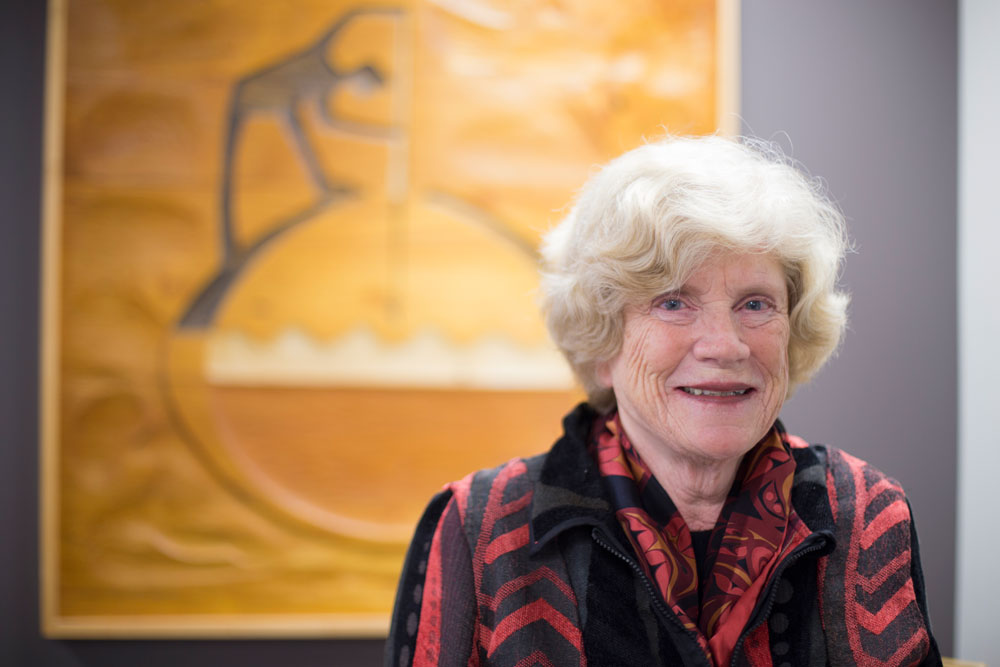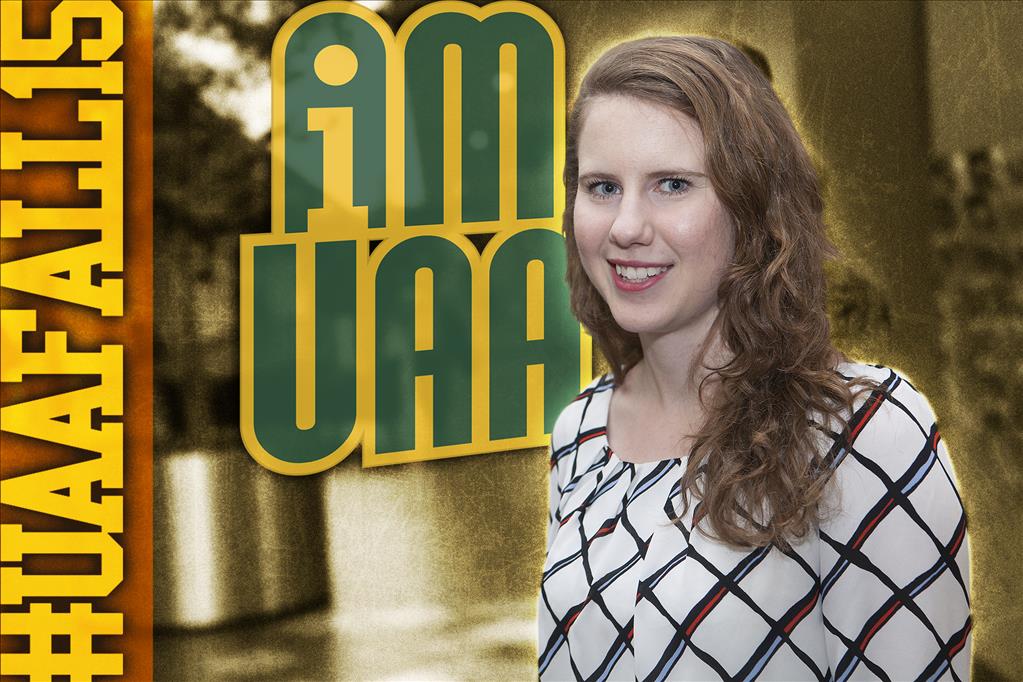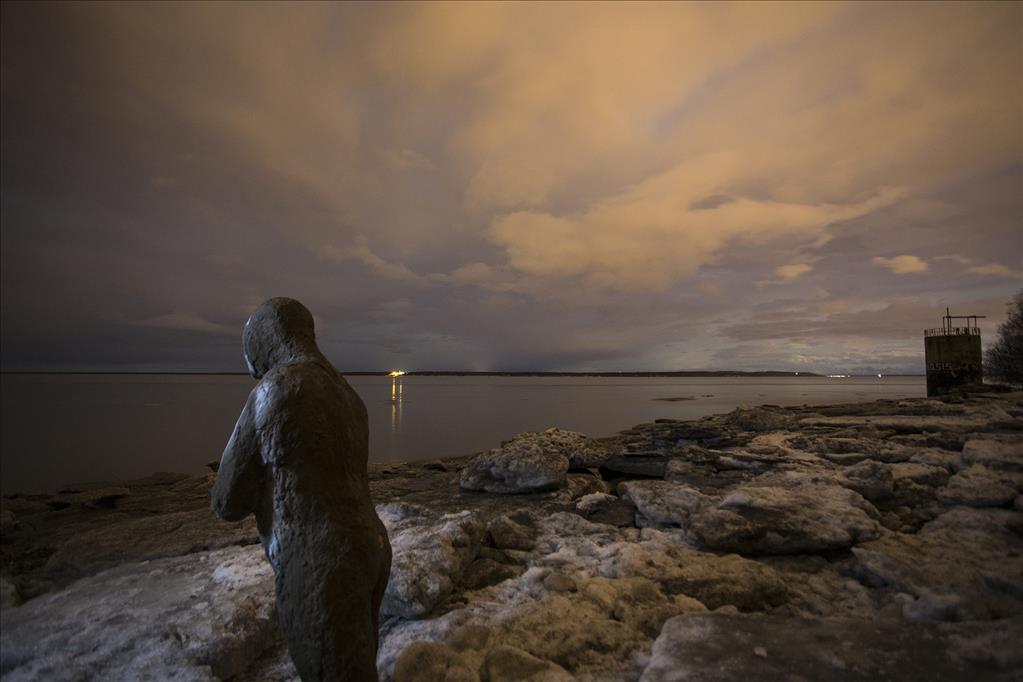Why do nurses and UAA need a DNP?
by Tracy Kalytiak |
Wanderlust brought Barbara Berner and her husband, James, to Sitka in the early 1970s when they were offered an opportunity to work for the Indian Health Service. He was a doctor. She was a registered nurse.
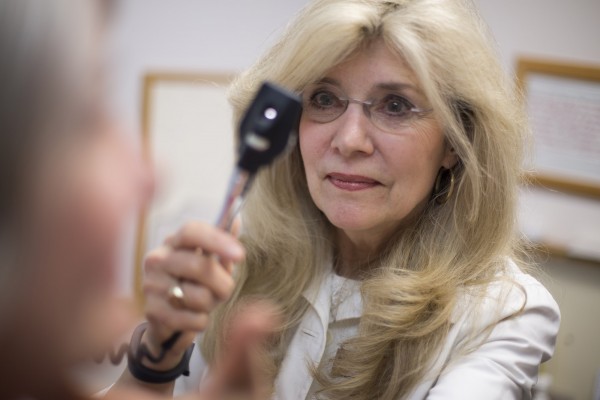
Dr. Barbara Berner is a nurse practitioner in Anchorage who also serves as director of the UAA School of Nursing. (Photo by Theodore Kincaid/University of Alaska Anchorage)
"We loved it here. It was a place where we could make a difference," said Berner, director of UAA's School of Nursing.
Berner saw, firsthand, what a difference nurse practitioners could play in addressing the state's urgent need for more health care providers, so she left Alaska to earn a master's degree, doctor of education degree and a post master's certificate, and returned to use her skills as a family nurse practitioner and train community health aides. Then, through UAA, Berner cultivated more family nurse practitioners and led the effort for UAA to offer the state's only DNP degree program.
We spoke with Berner recently about nursing, health care and the DNP:
Q: What's the difference between a DNP and a Ph.D.?
A: The Ph.D. is a research doctorate. The DNP is a clinical doctorate, an application-type doctorate for people who don't want to do research but who want to stay by the bedside taking care of their patients and yet improve practice. It's basically taking that research and trying it out in the clinical area, seeing if it works. We have lots of things we discover within the, quote, ivory tower, which are wonderful, but are they really applicable, do they really make a difference, do they really work. It's kind of like in vitro versus in vivo. I like the in vivo piece.
Q: What were your thoughts after discussion began at the national level about the need for a DNP?
A: When I first heard about it, I was very skeptical. I didn't really see how it would work. The realization came to me that if we were going to, as a profession, be able to make an impact in health policy and health change, that we needed to have in the profession a clinical doctorate.
Q: Why is the DNP a critical need for the nursing profession?
A: It has been an issue for a long time. If you look at people who are developing health policy, if you look at boards in our hospital institutions, you almost never see nurses making those decisions, getting involved with that level of policy. And yet many of the things that are happening and changes that are needed in health care were things we've done for hundreds of years. Patient-centered care has been prime for nurses yet it almost seems like it's a new concept that people are just beginning to understand. Had we been able to have a voice at the table many years ago, maybe some of these changes would have occurred a lot earlier. We have a lot to offer as nurses, and from our philosophy of holistic health care, and it's time we were heard.
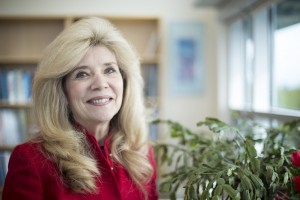
Dr. Barbara Berner led efforts to win approval for a Doctorate of Nursing Practice to be offered at UAA. (Photo by Theodore Kincaid/University of Alaska Anchorage)
Q: What's kept nurses from being included in that discussion of big-picture health care issues and policy development?
A: The major obstacle is that we're a new profession and we have to prove ourselves. The types of care we gave appeared to be domestic kinds of things-mothering, taking care of people. [Nurses] didn't have that level of respect. The era of the nurse practitioner started 50 years ago and was very controversial. Some people at a high level of nursing were opposed because they felt people wanting to be practitioners were going over to the side of the physician in primary care. That was the farthest thing from the truth. In fact, it was actually taking our whole philosophy of holistic approach and dealing with the entire family, the whole person, into the level of primary care. That really made the difference. Some physicians opposed this: It was turf, it was power, it was money. Some are still opposed because they think we don't have that level of education and background. But I firmly believe there is room for all of us, particularly in primary care. There are only 18 states where nurse practitioners practice independently; we've been doing it [in Alaska] for more than 30 years.
Q: Why do you think there is plenty of room in Alaska for both physicians and nurse practitioners to provide care?
A: We don't have enough health care providers in the state. The number of physicians going into family practice and primary care is decreasing. That has been a statistic that's been pretty clear over a number of years for students graduating from medical school. There's a push to try to get more family practitioners and we have family practice residencies here, but we still don't have enough providers in the state, particularly in rural areas. The nurse practitioners are a wonderful resource in those areas; we need to be able to better utilize the particular strengths of physicians in some of these more complex and specialty areas. It's going to take all of us. We need everybody to get involved. We shouldn't be blocking anybody from being able to provide this care.
Q: How do you as a nurse practitioner interact with physicians?
I work very closely with a lot of specialists. I still do one day of work a week clinical. That's my great love and I'll never give that up. I have very good relationships with a lot of physician specialists I send my patients to when I feel they have a problem that's out of my scope of practice. Still, there are a few who say if you want to do medical care you need to go to medical school. I had a wonderful colleague who was a practitioner in Maine who said it doesn't take an astronaut to fly a plane. Having this education, the DNP, will provide nurses with the capabilities of being able to have strength of leadership and show that and feel confident about it.
Q: Why did you choose to be a nurse rather than go to medical school and become a physician?
A: Because I really liked what I was doing. I liked the relationship I had with my patients. I liked being able to be with them, to stay with them, to develop that really close bond with people you only have when they're in a crisis situation and you're there with them. That was very important to me. Being a nurse practitioner, I felt like I had the best of both worlds: I could continue to be a nurse but still provide primary care services I felt were important. The other piece I think is really valuable here, particularly when we get into primary care: There have been many studies done looking at health care outcomes of people taken care of by nurse practitioners versus physicians versus physician assistants and other groups. There has not been one single study in at least 26 years of research-and not just nursing research-that shows the nursing care that's given by nurse practitioners is less than what the outcomes are for physicians and other health care providers. It's either equal to or better than similar outcomes for the types of patients we see.
Q: What accelerated growth of the DNP programs in other parts of the country?
A: The Institute of Medicine report in 2010 was a monumental report developed by physicians, nurses, lawyers and others with an interest in health care. They believed the profession of nursing didn't have enough of a voice. What they did was look at the profession of nursing as a whole and made recommendations clearly supporting how the profession needs to move forward, to have more of a voice, to make these things happen. One of their first recommendations was higher levels of education. The majority of nurses at the bedside should have a bachelor's degree, minimum, and that we should have at least 10 percent of our nursing workforce with higher levels of degrees-master's and doctoral levels. The importance of nursing had not really been represented well. The IOM made a significant difference in moving us forward.
Q: How was the idea of a DNP initially received within the nursing profession?
A: There was a lot of resistance within nursing-we didn't really need this, why were we doing this, it was going to take away from people who wanted a Ph.D.-and yet there were a lot of people who said, 'Finally, something that really interests me as I increase my level of education. I want to get a doctorate but I want it to be in the kinds of things I love in my clinical practice.'
Q: What opportunities can a DNP open up?
A: What we're focusing on in our program is the advance practice nurse practitioners, so we have family and psychiatric nurse practitioners who will be going through this program. That's a very large area we've already done in the master's program but now we'll be moving it to the DNP. Parenthetically, the DNP is also a very appropriate degree for nurses who want to go into [health] informatics, who want to do nursing administration, public health nursing.
Q: What can a DNP provide a working nurse practitioner that he or she might not have right now?
A: People practicing in the clinical area will have the ability to understand the larger picture of health care as it impacts their clinics and their patients. They will have the ability to understand the larger dynamics, the 10,000-foot view of health care and health policy. We'll be doing more on epidemiology and prevention, as well as application of research into practice, leadership in management, conflict resolution, the kinds of things that makes these practitioners leaders in their fields.
 "Why do nurses and UAA need a DNP?" is licensed under a Creative Commons Attribution-NonCommercial 4.0 International License.
"Why do nurses and UAA need a DNP?" is licensed under a Creative Commons Attribution-NonCommercial 4.0 International License.












